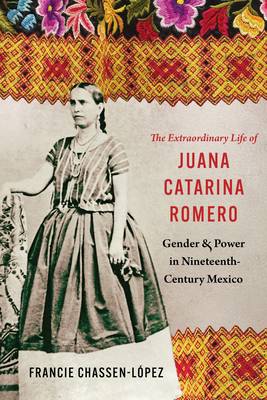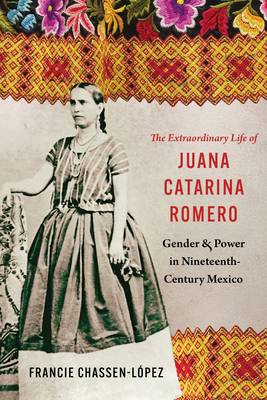
- Afhalen na 1 uur in een winkel met voorraad
- In januari gratis thuislevering in België
- Ruim aanbod met 7 miljoen producten
- Afhalen na 1 uur in een winkel met voorraad
- In januari gratis thuislevering in België
- Ruim aanbod met 7 miljoen producten
The Extraordinary Life of Juana Catarina Romero
Gender and Power in Nineteenth-Century Mexico
Francie R Chassen-LópezOmschrijving
The construction of the nation-state, the development of capitalism, and the modernization of society have historically been defined as masculine endeavors, with women on the sidelines. This biography of Juana Catarina Romero (1837-1915) shatters many of the stereotypes of nineteenth-century women and provides a new perspective of women's national agency during a time in which women could neither vote nor hold political office. Romero's breathtaking climb from illiterate cigarette peddler and Liberal spy to wealthy entrepreneur, philanthropist, and, finally, cacica (political boss) of the city of Tehuantepec, despite the opposition of male elites, reveals the growing fluidity of class, race, and ethnicity.
Francie Chassen-López's fascinating biography of Romero offers rich insight into the complexities of modernization as it developed on the periphery of Mexico. Romero sought a Tehuantepec-style modernity, a modus vivendi between modernization, Catholicism, and isthmian Zapotec culture. Like her friend President Porfirio Díaz, Romero formed part of a group of ambitious Mexicans of modest origins, forged in civil war, who would build the Mexican nation-state.
Specificaties
Betrokkenen
- Auteur(s):
- Uitgeverij:
Inhoud
- Aantal bladzijden:
- 364
- Taal:
- Engels
- Reeks:
Eigenschappen
- Productcode (EAN):
- 9781496246707
- Verschijningsdatum:
- 1/08/2026
- Uitvoering:
- Hardcover
- Formaat:
- Genaaid
- Afmetingen:
- 152 mm x 229 mm

Alleen bij Standaard Boekhandel
Beoordelingen
We publiceren alleen reviews die voldoen aan de voorwaarden voor reviews. Bekijk onze voorwaarden voor reviews.









